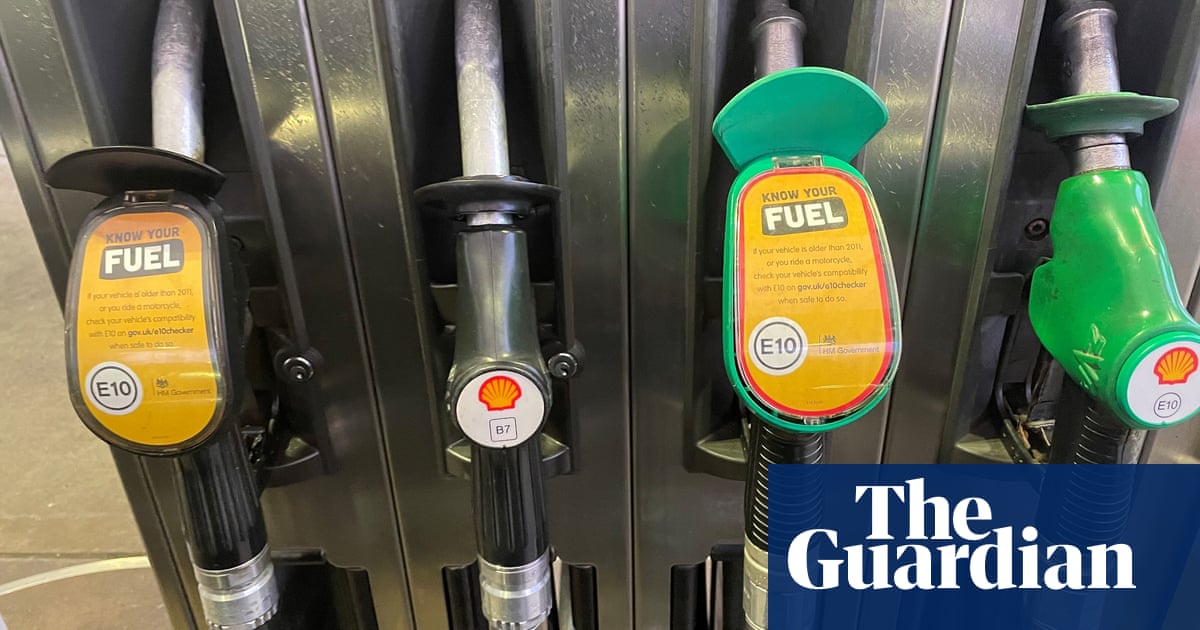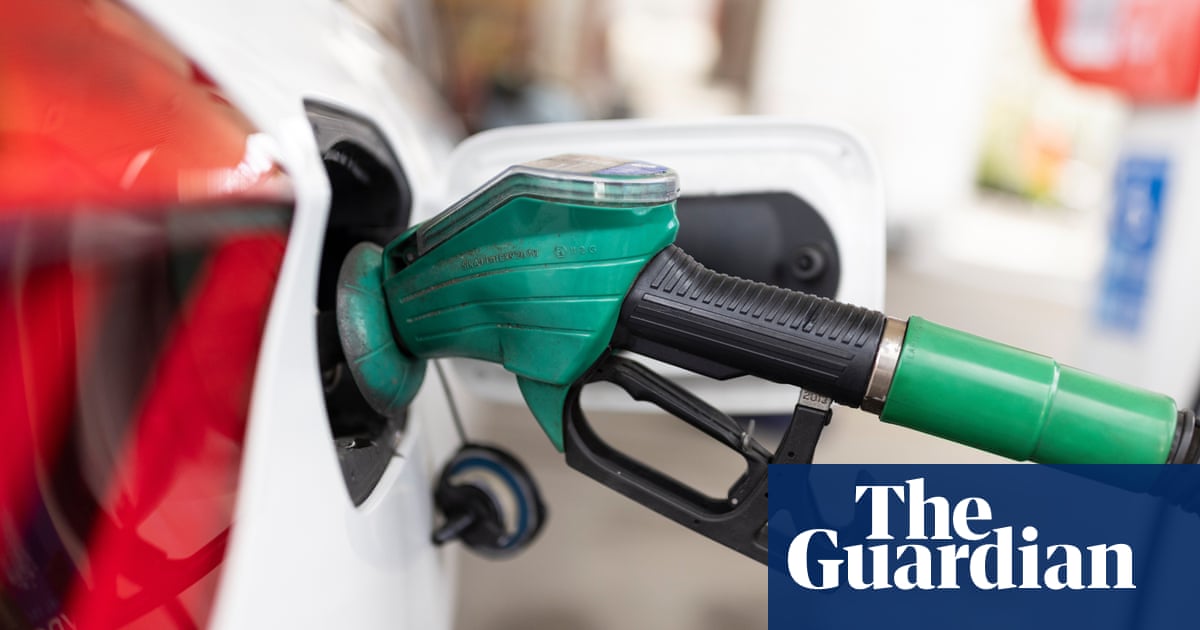
UK petrol and diesel prices have exceeded the “grim milestone” of 150p a litre for the first time, with further rises expected as Russia’s invasion of Ukraine pushes up the cost of fuel worldwide.
The average cost of unleaded petrol climbed to 151.25p and diesel rose to 154.74p on Sunday, both record highs, according to RAC data from 7,500 petrol forecourts.
The jump in prices will add to the burden on the public who are already struggling with a cost of living crisis, with inflation at 5.5% in January – its highest rate for almost 30 years.
“It’s truly a grim milestone that no one ever wanted to see,” Simon Williams, the RAC’s fuel spokesperson, said. “This is really going to hurt household budgets.”
Williams warned that fuel costs were likely to increase and could even top 160p a litre in the coming weeks – worsening the impact on British living costs. He said this would make the cost of a full tank of petrol for a 55-litre family car £83.
Luke Bosdet, the AA’s fuel price spokeperson, said: “Petrol at [above] 150p a litre reaches a milestone that millions of motorists faced with a cost of living crisis have dreaded.
“It comes as households are getting notices of domestic energy price rises in April. To think that less than two years ago fuel at £1 a litre beckoned.”
The latest figures are a jump from petrol’s 149.67p and diesel’s 153.05p on Thursday, record highs at the time.
“Despite the wholesale market calming slightly at the end of last week as oil fell back under $100 [£75], prices at the pump will continue to go up as retailers buy in new stock at much higher prices,” Williams said.
Russia is the world’s second-largest crude oil exporter behind Saudi Arabia and there are fears Vladimir Putin could respond to western sanctions by restricting supplies.
“We must now wean ourselves off dependence on Putin’s oil and gas,” Boris Johnson told the Munich security conference last weekend. However, the prime minister said it would be “the work of the months and years to come”.
Johnson imposed a package of sanctions on Russia last week – after Germany’s cancellation of the planned Nord Stream 2 gas pipeline – and Putin has begun responding.
Conservative MP Robert Halfon said fuel was “genuinely going to be unaffordable for most families”, adding: “It isn’t just for motorists, it’s businesses too because they can’t afford transportation costs and this has a huge knock-on impact in terms of prices.”
Halfon urged the government to take action by cutting VAT or fuel duty, arguing it would be relatively affordable “because they are raking it in at the moment given the prices of petrol”.
BP on Sunday announced it was exiting its £10.4bn stake in the Russian state-owned oil company Rosneft, citing a “fundamental change” in relations with Moscow and responding to pressure from the UK government.
Prices for Brent crude oil – the international benchmark – surged by 4.8% to $102.67 a barrel on Monday.
The Bank of England expects the cost of living crisis to deepen, forecasting the consumer prices index will rise above 7% by spring. The chancellor, Rishi Sunak, has been criticised for his refusal to cancel the planned national insurance rise.
A Treasury spokesperson said: “To keep costs down, the chancellor froze fuel duty at [the] autumn budget for the 12th year in a row, which saves drivers around £15 every time they fill up their tank compared to pre-2010 plans.”
They added that the government was taking other measures worth “around £21bn this financial year and next” to tackle cost of living pressures.












